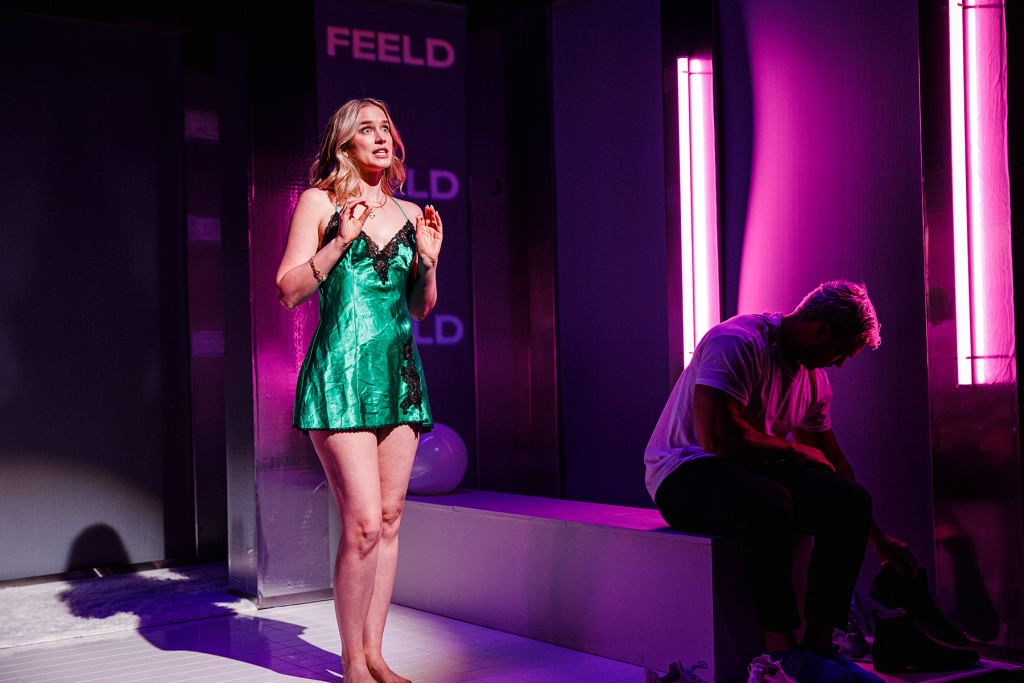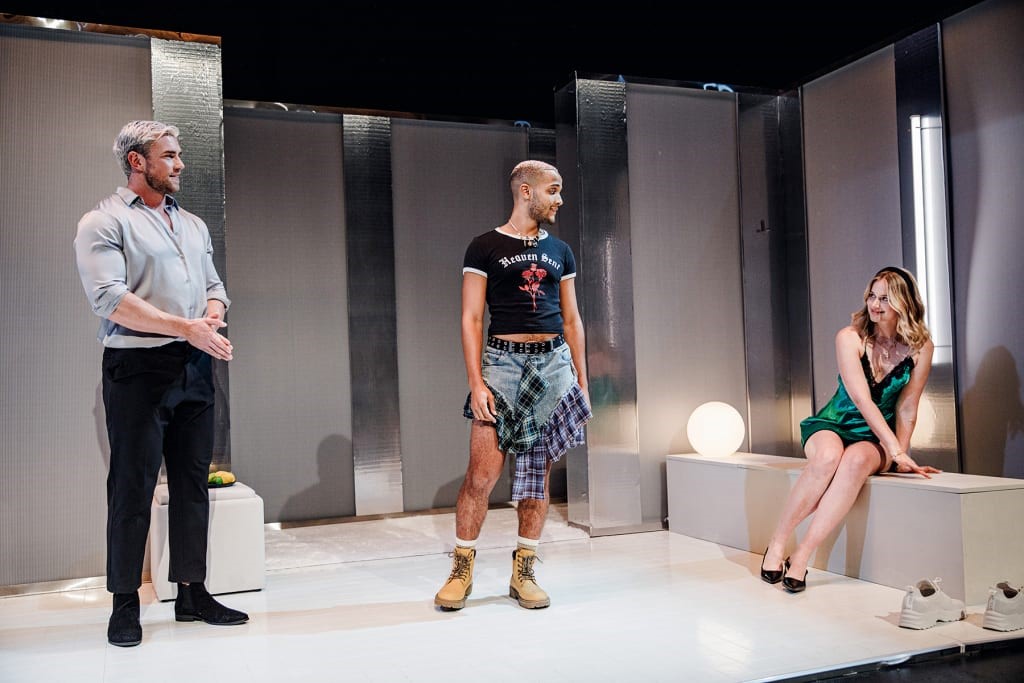Feeld’s polyamory play: Why tech is invading off-Broadway theatre
Feeld sponsored a play about dating in the internet age. It’s part of a growing trend of tech companies mixing performance and marketing.
Tiffany and Tucker are looking for a third. Tucker wants to experiment with his sexuality; Tiffany wants to watch. Naturally, they look to Feeld, a dating app that’s become increasingly popular with polyamorous couples.
This begins the downward spiral of Pretty Perfect Lives, a play that bats around its influence-hungry subjects through recouplings and technological breakdowns. The off-Broadway show, which runs at New York’s Flea Theater till September 8, is presented in collaboration with Feeld.
The company is not alone in seeing theater as a spot to grow eyes: Netflix is currently producing a prequel play for their show Stranger Things on London’s West End, bringing the production to Broadway in 2025. Disney has been producing Broadway smashes for years, with their Frozen adaptation now being circled back to Disney+.
“We’re not that sort of pay-for-play, you have to download the app in order to get a ticket,” says Ashley Dos Santos, head of communications at Feeld. “It’s not a sales mechanism at all. It’s awareness.”

Why is Feeld interested in theater?
Pretty Perfect Lives is not the commercialized product one might expect from a tech collaboration. Feeld sees itself more as a supporter and purveyor of the arts (see its digital magazine and creative parties).
“We were not founded by tech geniuses or people who are behind the scenes doing coding all the time,” Dos Santos says. “We were founded by two people in love who were both natural-born creatives, and said, ‘We just want a space to be ourselves.’ There is nothing truer to that than being in the arts.”
For Feeld, it’s all about brand awareness. With a backpage playbill advertisement and a shoutout mid-show (effortlessly interlaced as a spoof influencer sponsorship), Pretty Perfect Lives can subtly expose Feeld to a broader audience. They reap no direct earnings from the show’s success.
“We put in a small investment to help them with everything that they’re doing,” Dos Santos says. “We hope it does go on to be a blockbuster on Broadway and have film adaptations and all the things, but no, we have no financial stake.”
Intermingling drama and marketing is messy
Non-monogamy and polyamory are still budding concepts in the world of sexuality. While Feeld doesn’t exclusively service these populations, they are a primary user base on the app, and a significant reason for the its growth. Feeld believes exposing the world to more non-traditional dating stories is a strategy that could pay off in the long run.
“At the end of the day, we are helping tell the stories of our people, the inner worlds of our people, our members, our communities,” Dos Santos says. “We think that this is the actual off-Broadway realization of that.”

There’s a curious synergy between the content of Pretty Perfect Lives and its producer. Tech ravages the lives of Tucker, Tiffany, and Jesse, with just one glitch leading to a harrowing panic attack in the second half of the play. The play’s depiction of Feeld isn’t exactly glowing, either: After finding their third Jesse through the app, Tucker and Tiffany almost immediately break up.
In a panel after the performance, the play’s stars and producers considered the state of modern social media and connectedness. Executive producer Jordan Fisher, a Disney kid turned Broadway big-name, particularly railed against the artificially online.
“What happens when the phones go down?” Fisher asked. “How we express our lives, and how we curate that so beautifully online, it’s frozen. It’s usually not us from an authentic point of view. I find that very interesting.”
Elizabeth Lail, star of You and the play’s Tiffany, expressed a commitment to living outside the internet bubble: “As gratifying as it could potentially be to feel cute or whatever it is that day, [social media] is as equally demoralizing and isolating for me.”
Dating apps are part of that same internet, with users curating the best profile shots and witty captions to draw appeal. Why then is Feeld so comfortable supporting a play that attacks some of the key tenets of its industry?
Dos Santos bristles at this comparison: “[Pretty Perfect Lives] is not indicting technology, it’s indicting the use of it in a fake way. You are not going to live the life that you want to live, you are not going to truly be happy, if you do not bring your whole self to something.”
For Feeld, that messiness is something to revel in. It’s built into the app. Feeld drew users by offering more fluid and easily changeable identity markers, allowing users to shirk the rigidities of their competitors like Tinder or Hinge. A play that embraces the malleability of our identities, even if the online world tries to tamp them down, is more on-brand for Feeld than one might think.
ABOUT THE AUTHOR
(20)